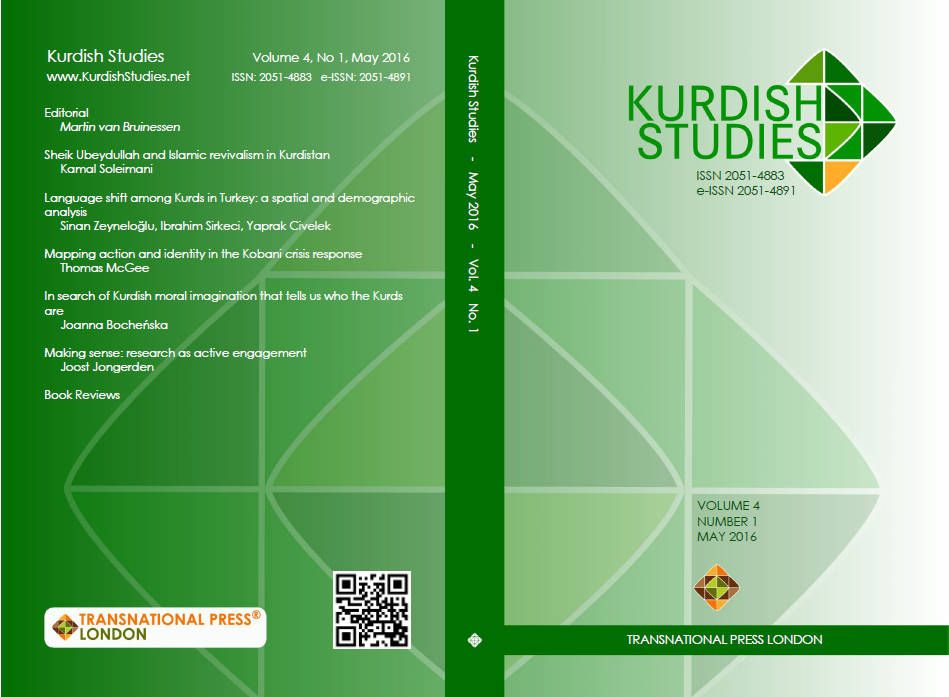Mapping action and identity in the Kobani crisis response
Mapping action and identity in the Kobani crisis response
Author(s): Thomas McGeeSubject(s): Politics / Political Sciences, Social Sciences, Geography, Regional studies, Human Rights and Humanitarian Law, Ethnohistory, Military history, Political history, Studies in violence and power, Nationalism Studies, Present Times (2010 - today), Migration Studies, Inter-Ethnic Relations, Ethnic Minorities Studies
Published by: Transnational Press London
Keywords: Kobani displacement; humanitarian action; Suruç;Turkey and Iraq;
Summary/Abstract: This article compares humanitarian operations associated with Turkish state and pro-Kurdish movement actors in response to the large cross-border displacement of Kurdish-Syrians into Turkey from the September 2014 Kobani crisis. Analysis draws on actor mapping methodologies and fieldwork conducted in the Kurdish-majority town of Suruç in southern Turkey. Parallels with the 2011 Van earthquakes highlight the ethno-national complexities and potential controversy encountered when responding to humanitarian needs of predominantly Kurdish populations in Turkey. The alternative territorial identities generated by practices of Kurdish municipal-level “governmentality” (through camp management and humanitarian assistance) trouble the assumed hierarchy between Turkish state authorities and Kurdish challengers.
Journal: Kurdish Studies
- Issue Year: 4/2016
- Issue No: 1
- Page Range: 51-77
- Page Count: 27
- Language: English

